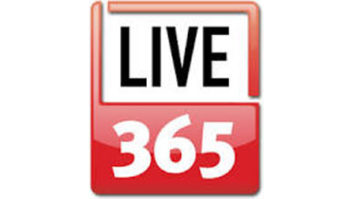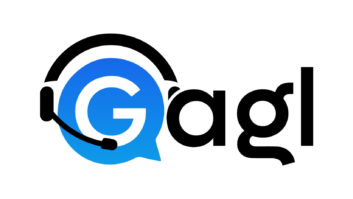
Tagging is one of the features highlighted by iBiquity Digital in a brochure about the benefits of HD Radio in the wireless market.
CUPERTINO, Calif. If FM radio is going to insert itself more directly into the music-purchasing loop via song tagging, a lot will depend on its developing relationships with Apple and Microsoft.
The technology giants, which media analysts say control the legal song download market in the United States, will have a major say in whether radio broadcasters ever see substantial revenue through their song tagging efforts, observers believe.
Tagging technology allows a terrestrial FM listener to “tag” a song heard on a specially equipped analog or HD Radio player — with a dock for an iPod or MP3 player — and later buy and download it to the player through Apple’s iTunes or Microsoft’s Zune Marketplace.
Nine major radio groups in 2008 committed to encoding songs to allow listeners to tag songs and are in various stages of deployment, with Clear Channel the largest adapter to date (see “Song Tagging Push Underway,” Radio World, March 10). Terrestrial broadcasters must encode songs with metadata that is transferred via the Radio Broadcast Data System subcarrier channel or HD Radio channels.
Testing the waters?
Microsoft and Apple apparently hope song tagging will result in increased music download sales; but neither has been vocal in talking about it or taken a very high profile with tagging. It’s hard to judge whether those firms are big believers or just dipping their toes into the market waters.
Industry analysts estimate that Apple is paying broadcast partners around 5 percent of the price for each download credit.
Apple, which posted a $3 billion profit in Q2, announced in February that consumers had purchased and downloaded 10 billion songs on iTunes to date. The company is the marketplace leader and most important player, industry observers agree.
The company declined to comment for this story but has indicated that it sees song tagging as a great way for local broadcasters to jump into the digital music space.
Microsoft declined to comment on its song tagging intentions for this story and said it expects to have “no comment available” for the foreseeable future.
The company was sued in March by an Illinois man who claims the company copied his patented technology for tagging and downloading music through an FM receiver (see sidebar).

The Alpine CDA-117 CD radio features iTunes Tagging. An Alpine executive said, ‘Consumers are starting to make the link between radio and tagging.’ Meanwhile, terrestrial broadcasters who support tagging believe the technology may help gain them younger listeners and some revenue from song purchasing.
Dennis Wharton, executive vice president of media relations for NAB, said radio’s prime motivation here seems to be a desire to attract and maintain listeners.
“Generating revenue is a part of the equation, but the revenue coming to stations right now through song tagging is quite modest. We think tagging provides listeners with a new gateway to purchase music, benefiting both recording artists and their record label. These technological developments underscore radio’s staying power in a new media world.”
‘Arcane’
Despite radio’s intentions to capitalize on the new technology, it’s difficult anecdotally to find consumers who are aware of tagging or participants who think a big payoff will come anytime soon.
Nor have financial analysts who follow radio written much about song tagging. Typically their reports have focused on debt capital management during a credit crunch rather than new innovations, industry watchers said.
Several radio financial analysts contacted for this article said they were prohibited by their employers from commenting publicly about iTunes song tagging because they have not written about the topic.
“It really hasn’t some up in quarterly earnings calls, so apparently (tagging) is not yet for material for CEOs to alert of brag about to Wall Street investors,” said Jim Boyle, senior analyst at Gilford Securities.
Song tagging as a revenue generator is “really an unknown” right now, said Bishop Cheen, a financial analyst with Wells Fargo Securities.
Microsoft Sued Over Zune Feature
A lawsuit filed by an Illinois ophthalmologist in U.S. District Court for the Western District of Wisconsin alleges that the “Buy from FM” feature Microsoft has built into its Zune MP3 devices violate patents he was issued in 2002, according to numerous media reports.
Dr. Edward Yavitz’s lawsuit asks for a permanent injunction prohibiting Microsoft from selling new Zunes and Zune HDs, plus triple damages and court costs, according to these accounts.
Microsoft introduced the Buy from FM feature for its Zune players in 2008. Yavitz pitched the company his idea for a similar feature in 2006. At the time Yavitz was seeking to license his technology to Microsoft.
Yavitz LLC holds patents at the crux of the claim that deal with broadcast technology, reports indicated. In the abstract of one, 6,473,792, the patent holders write of “a broadcast reception system or display system combined with a computer. The inspection system includes a receiver that is integrated with a computer. The receiver may be configured to receive analog FM signals and linked data transmitted according to at least one of the RDS and MBS standards.”
The abstract continues, “The data serves as a trigger to provide the user with a prompt on the computer system. The prompt may be utilized to access information related to the primary radio broadcast and previously stored at a memory location. This permits a user to quickly access large amounts of information relevant to the current programming of a given radio station or to purchase music, goods and services featured in an FM broadcast.”
If there is legitimacy to the plaintiff’s claims, analysts said, the developments could hamper efforts to accelerate song tagging adoption by the public. Attempts by Radio World to reach Yavitz for comment were unsuccessful. Microsoft declined comment on the suit.
“The core for radio has been so weak for so long that managements and investors would really prefer to see a fundamental recovery more than whatever the new thing may or may not be. Tagging is just one aspect of digital radio that may yet gain a foothold, but it really is way too new, and too arcane right now to be a driver of any investor sentiment.”
John Sanders, media analyst with Bond & Pecaro, said he is skeptical whether song tagging will ever become more than a very small sliver of revenue for radio broadcasters. He said it “will not mark a revolutionizing of revenue for radio. It won’t be radio’s salvation.”
Making the link
However, some stakeholders remain optimistic. Several radio receiver manufacturers, like Sony, JVC and Kenwood, have added tagging capability to their automobile OEM and aftermarket head units in the past year, as we’ve reported (see March 10 CES coverage).
“Consumers are starting to make the link between radio and tagging. It’s really an offshoot of the increasing popularity of HD Radio,” said Steve Brown, products promotion director for Alpine Electronics. “Song tagging is available on every HD Radio module we sell.”
Brown said Alpine, which carries radio that work with iTunes tagging, believes tagging will become more popular as manufacturers continue to integrate iPod and other MP3 players with and car audio systems.
He and others pointed to a statistic from Arbitron and Edison Research, part of the “Infinite Dial 2010: Digital Platforms and the Future of Radio” survey, that 24 percent of people 12 and older have listened to an iPod, iPhone or other MP3 player while the player is connected to a car stereo.
The study found that 44 percent of Americans 12 and older own an MP3 player and 54 percent of that group have hooked up the player to listen in the car.
Outside of the car, iBiquity Digital’s 2010 buyer’s guide lists six tabletop radios that act as docking systems with iTunes tagging.
Will tagging take off? Comment to[email protected].










